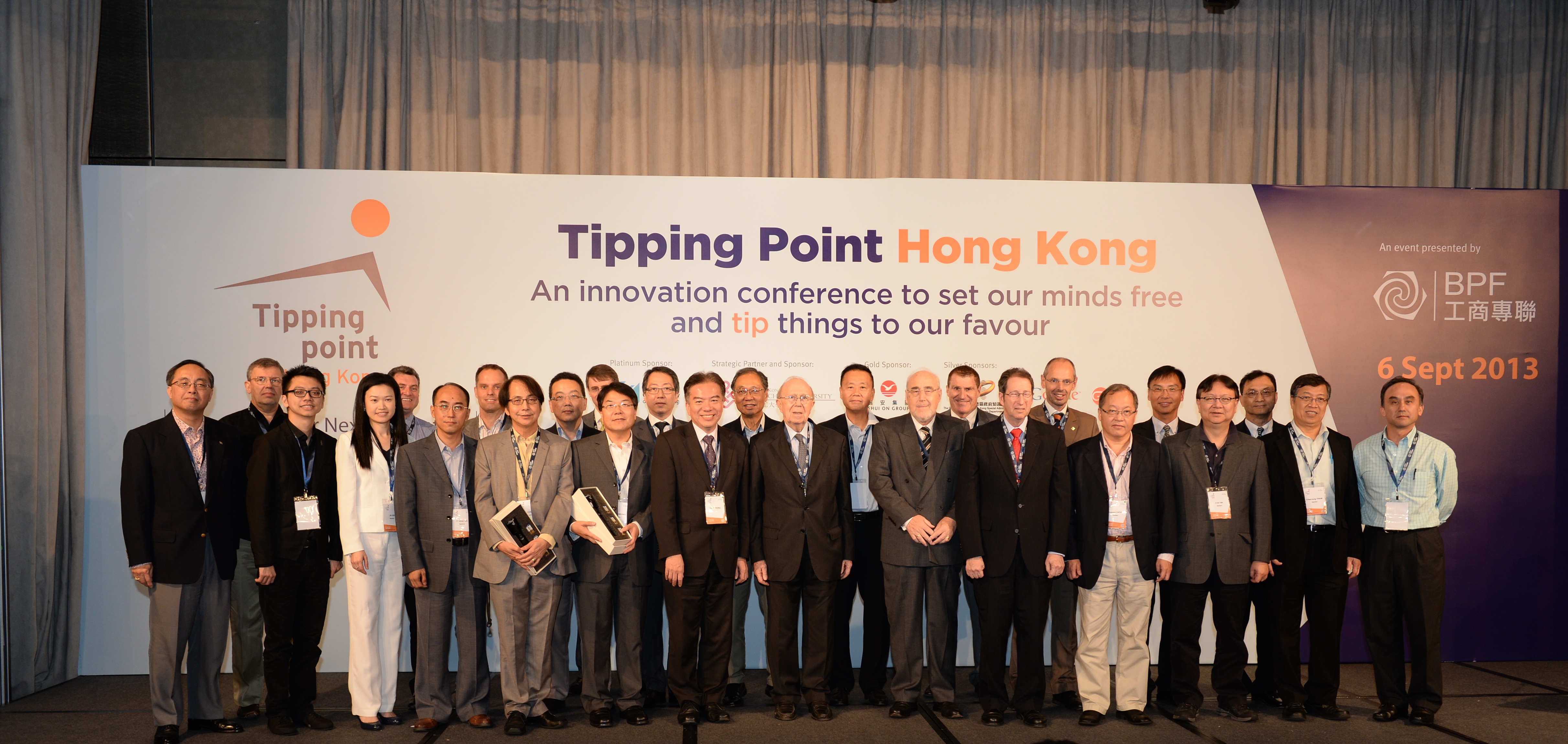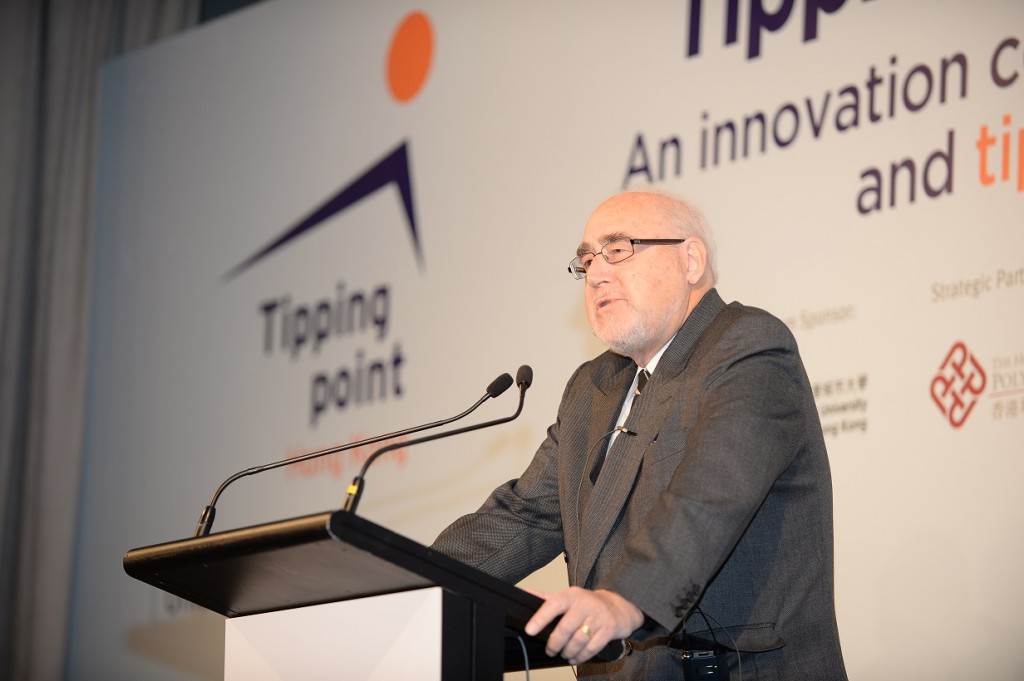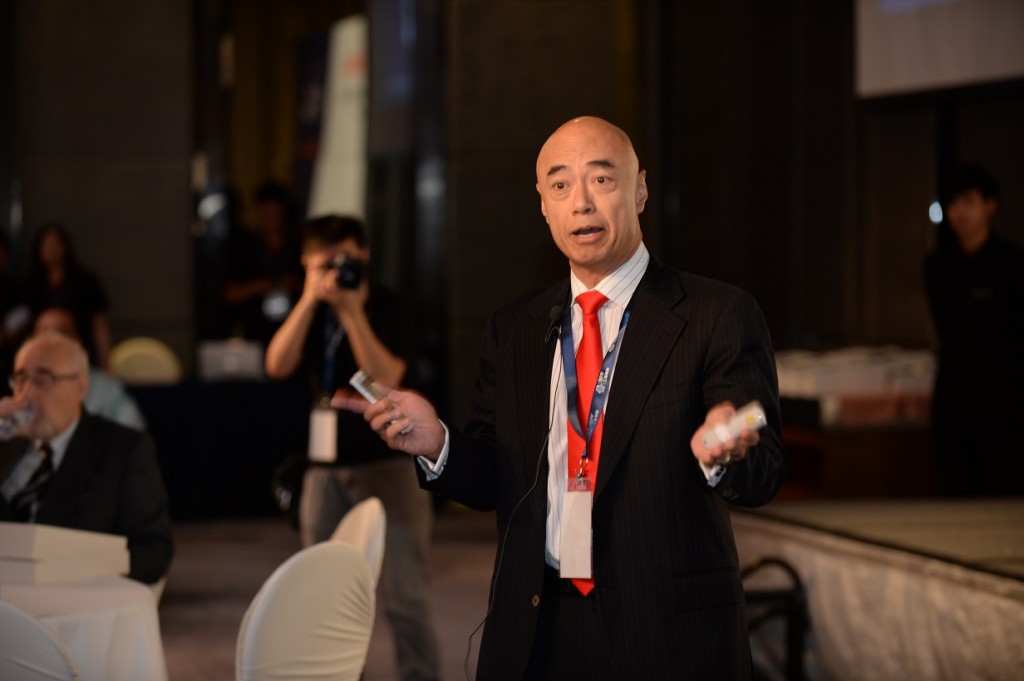Concerned about the future of Hong Kong’s ecosystem, the Business and Professionals Federation of Hong Kong (BPF) gathered thought leaders, investors, and supporters of innovation alike to brainstorm solutions at the Tipping Point conference on Friday.
We had the opportunity to chat with keynote speakers Professor Gordon Redding (Senior Fellow at INSEAD and a specialist in the comparison of capitalist systems) and Dr. Po Chi Wu (An Adjunct Professor and initiator of entrepreneurship and innovation programs at HKUST), and they told StartupsHK their thoughts on the conference and the future of innovation in Hong Kong.
According to Professor Redding, who founded and directed the University of Hong Kong’s business school, Hong Kong is in a rare position that other Asian countries are not privy to, and the Tipping Point conference is exemplary of this advantage.
“This is an example of civil society in action, which is not possible in a lot of places in Asia,” observes Professor Redding. “It’s a very distinct formula for gathering momentum and instituting adaptation and change.” Since Tipping Point was organized, funded and run by the world of business, essentially a group of people who are worried their society’s future; this in turn created a “by the people, for the people” effect.
Another point that Professor Redding drives home is that Hong Kong embodies an unusual economic structure which is both positive and progressive, similar to other “catalyst cities” such as Venice and Amsterdam (for Europe) and of course, Singapore (for Asia). “Hong Kong has always been a point of contact between the outside world and China, it’s never been anything else other than a transition station, which allows for the worlds of finance, technology, knowledge, science, education and management to come together very fruitfully.”
According to Professor Redding, innovation is the name of the game and he stresses that change is absolutely fundamental to evolutionary progress, but Hong Kong will need to improve its performance in order to continue to be an effective catalyst.
Dr. Wu, who has founded investment advisory and venture capital firms in both China and Silicon Valley, offered his insight on why Hong Kong may be struggling in its bid for an innovative future.
“One of the conventional wisdoms is that the issue lies with the investors: the more aggressive ones are investing in mainland China, but very few are investing in new startups and early stage companies that are based in Hong Kong.” While Dr. Wu acknowledged that technology is indeed a driver of change, he laments that early stage tech ventures may fail to pique investor interest since low risk and relatively short term returns (which is usually within a 2-3 year range) on their investments is always a priority – and a few years is the standard amount of time a product takes to come to fruition.
Beyond the issue of investment, Dr. Wu also stresses that Hong Kong is missing a key piece of infrastructure: medium or large technology companies with the potential for global expansion. A plausible solution, according to Dr. Wu, is to bring in high-level talent, such as senior experts with market experience, as startups would greatly benefit from guidance and even the participation of seasoned professionals.
Although Dr. Wu admits that there is no quick fix for the roadblocks that Hong Kong currently faces, he is optimistic that innovation conferences such as Tipping Point, where leaders and supporters have the opportunity to join forces, will be contributory to Hong Kong’s success.
“It’s ultimately all about human capital,” says Dr. Wu, “hopefully, as a result from this conference, people will compete to cooperate – you have to collaborate if you want to raise the bar and be more competitive.”



